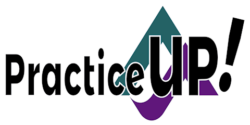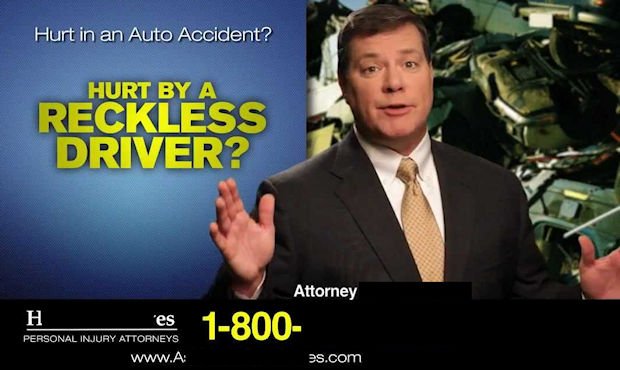You know who they are because they are all over the TV, and billboards, too – ad nauseum – by the dozens, depending on the population size of the area you live in. In our area, there are at least a dozen different “personal injury” lawyers parading by us on TV commercials in any given week. I also see them on billboards, and on the sides of city busses. My reaction is always mixed – marveling at how many of them there are, realizing the horrible situations their clients have been in, and estimating the profitability of not just those lawyers, but of the TV stations billboard, and bus wrapping companies that flourish because of it all.
Those ads are ubiquitous because they are so very successful. They reap huge rewards for everyone but the insurers who must negotiate with them or fight them in court.
If we take a moment to think it through, we can figure out WHY they are so successful. Then we, as advocates and care managers, can make use of the same tactics.
What Advocates and Personal Injury Lawyers Have in Common
People hire independent advocates for exactly the same reasons they hire a personal injury lawyer. They are in dire straits. Their health or security, or both have been threatened. They are FUDGE: fearful, uncertain, doubtful, feeling guilty, and possibly exhausted. They don’t have confidence they can solve their problems themselves, at least not with answers that seem fair and affordable.
To choose an attorney (or an advocate), they need to know THREE things (at least at first):
- They need to know the advocate can help them; that they offer the services required to fix the situation.
- They need to know they can TRUST the person they hire, and that the advocate will be diligent and will fight for them.
- They need to know the service is affordable.

Enter these commercials, bus wraps, and billboards. When we take a look, what do we see?
In some of the commercials, and even on this billboard, we see people who have been hurt, rendering their health and security in jeopardy. They look like us! And they are smiling and happy! They needed help and they got it! They assure us about how effective the attorney was, and how their hands were held, and lives improved by working with them!
If I’m injured, that’s what I want too!
As advocates, our promotional / marketing materials can do the same thing. We can include testimonials / endorsements / the good words of people we have helped. Check out a couple of our advocates’ testimonials on AdvoConnection listings… do a search and see others. VERY effective! Example 1 Example 2
Advocates are Trustworthy, Too

Many of the ads we see are created to show the attorneys’ personalities; specifically that they are TOUGH and COMPASSIONATE. They they will “FIGHT” for you. Their ALLEGIANCE is to ONLY you. They will always be THERE for you. They will be your HEROES. And of course, that you can TRUST them to do all those things.
We advocates can do the same – be our clients’ heroes, too! That’s how we want to come across to potential clients – that we will stand up for their rights, that we will be respectful, that we will hold their hands through the process, that our allegiance is ONLY to them, and that we know exactly how to do that! That’s when they will hire us – when they are confident those aspects are true.
Advocacy Can Be Affordable
Finally – Aspect #3. Most personal injury lawyers explain during their commercials, and often on their billboards, too, that there will be no cost to the patient until they are successful*. That is what triggers the potential client to actually place the phone call.
I am NOT going to recommend any advocate promise there will be no charge unless a case is “won.” For one thing – our clients aren’t looking for that sort of promise to begin with, at least not in the same way. So working for free, including the offer of a free assessment – should never be part of an advocate’s promise.
Instead I’m going to remind you that smart advocates never do their work for free – and that includes assessments. We’ve covered this previously – and even offer an online course that helps you through the process. But the emphasis in the “three things” list above is on that word “affordable.” Certainly your assessment will be affordable. Or, looked at in a different way: if being compensated by a client for an assessment isn’t affordable to them, then certainly your work won’t be either – and in that case, its probably not a client who you can work for anyway.
So there’s some food for thought. Next time you see an ad about one of these ambulance chasers, then you might watch and learn and assess why that promotion is compelling to a person / patient who is in a similar frame of mind – and needs your help.
Then go take a look at your own marketing and promotional information and see how you, too, can emphasize your work to satisfy the capability, trust, and affordability factors of your advocacy work.
*What most of those potential clients don’t realize is that the reason those lawyers can make that promise is because they won’t take the case unless they are quite sure they CAN win. Then once they win, they keep 30% or more of the proceeds paid by the insurers. But no one can know if a case if winnable, or even possible, unless that injured party places the call to begin with.
Like PUP! TIPS?
Why not subscribe to find a new tip in your inbox once or twice a month?
Sign Up for TIPS


